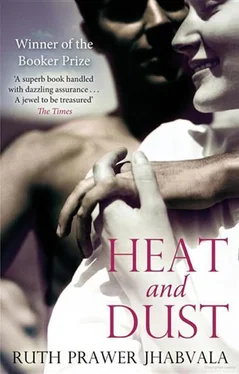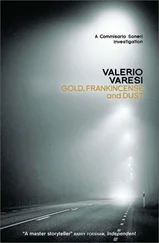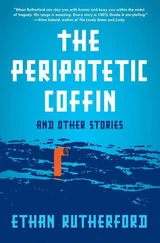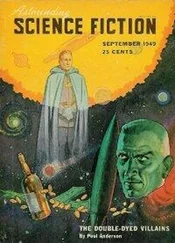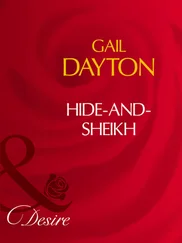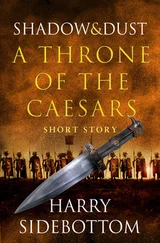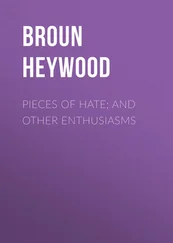Only the guests were not right. Besides the party from Satipur, there was another English couple, Major and Mrs. Minnies, who lived near Khatm; and one plump, balding Englishman called Harry something who was a house guest of the Nawab's. Major and Mrs. Minnies were very much like the Crawfords. Major Minnies was the political agent appointed to advise the Nawab and the rulers of some adjacent small states on matters of policy. He had been in India for over twenty years and knew all there was to know about it; so did his wife. And of course so did the Crawfords. Their experience went back several generations, for they were all members of families who had served in one or other of the Indian services since before the Mutiny. Olivia had met other such old India hands and was already very much bored by them and their interminable anecdotes about things that had happened in Kabul or Multan. She kept asking herself how it was possible to lead such exciting lives — administering whole provinces, fighting border battles, advising rulers — and at the same time to remain so dull. She looked around the table — at Mrs. Crawford and Mrs. Minnies in their dowdy frocks more suitable to the English watering places to which they would one day retire than to this royal dining table; Major Minnies and Mr. Crawford, puffy and florid, with voices that droned on and on confident of being listened to though everything they were saying was, Olivia thought, as boring as themselves. Only Douglas was different. She stole a look at him: yes, he was right. As always, he was sitting up very straight; his nose was straight, so was his high forehead; his evening jacket fitted impeccably. He was noble and fair.
Olivia was not the only one admiring Douglas. The Nawab's house guest, the Englishman called Harry someone who was sitting next to her, whispered to her: "I like your husband," "Oh do you?" Olivia said. "So do I." Harry picked up his napkin from his knees and giggled into it. He whispered from behind it: "Quite a change from our other friends," and his eyes swept over the Crawfords and the Minnies and when they came back to Olivia he rolled them in distress. She knew it was disloyal, but she could hardly help smiling in reply. It was nice to have someone feel the same way as herself; she hadn't so far met anyone in India who did. Not even, she sometimes could not help feeling, her Douglas. She looked at him again where he sat listening to Major Minnies with attention and genuine respect.
The Nawab, at the head of his table, also appeared to be listening to his guest with attention and respect. In fact, he was leaning forward in his eagerness not to miss a word. When Major Minnies' story turned amusing — he was telling them about a devilish clever Hindu moneylender in Patna who had attempted to outwit the Major many, many years ago when the latter was still green behind the ears — the Nawab, to mark his appreciation of the Major's humour, threw himself far back in his chair and rapped the table; he only interrupted his laughter in order to invite his other guests to join him in it. But Olivia felt he was putting it on: she was almost sure of it. She saw that, while he seemed to be entirely engrossed in listening to the Major, he was really very alert to what was going on around his table. Always the first to see an empty glass or plate, he would give a swift order: usually with a glance, though sometimes he rapped out, sotto-voce, some Urdu word of command. At the same time he took in each one of his guests, and it seemed to Olivia that he had already come to his own conclusions with regard to them all. She would have loved to know what those conclusions were but suspected that he would take good care to dissemble them. Unless of course she got to know him really well. His eyes often rested on her, and she let him study her while pretending not to notice. She liked it — as she had liked the way he had looked at her when she had first come in. His eyes had lit up — he checked himself immediately, but she had seen it and realised that here at last was one person in India to be interested in her the way she was used to.
After this party, Olivia felt better about being alone in the house all day; She knew the Nawab would come and call on her, and every day she dressed herself in one of her cool, pastel muslins and waited. Douglas always got up at crack of dawn — very quietly, for fear of waking her — to ride out on inspection before the sun got too hot. After that he went to the court-house and to his office and was usually too rushed to come home again till late in the evening and then always with files (how hard they worked their district officers!). By the time Olivia woke up, the servants had cleaned the house and let down all the blinds and shutters. The entire day was her own. In London she had loved having hours and hours to herself — she had always thought of herself as a very introspective person. But here she was beginning to dread these lonely days locked up with the servants who padded around on naked feet and respectfully waited for her to want something.
The Nawab came four days after the party. She was playing Chopin and when she heard his car she went on playing with redoubled dash. The servant announced him and when he entered she turned on her piano stool and opened her wide eyes wider: "Why Nawab Sahib, what a lovely surprise." She got up to greet him, holding out both hands to him in welcome..
He had come with a whole party (she was to learn later that he was usually attended). It included the Englishman, Harry, and then there were various young men from the Palace. They all made themselves at home in Olivia's drawing room, draping themselves in graceful attitudes over her sofas and rugs. Harry declared himself charmed with her room — he loved her black and white prints, her Japanese screen, her yellow chairs and lampshades. He flopped into an armchair and, panting like a man in exhaustion, pretended he had crossed a desert and had at last reached an oasis. The Nawab also seemed to enjoy being there. They stayed all day.
It passed in a flash. Afterwards Olivia could not recall what they had talked about — Harry seemed to have done most of the talking and she and the Nawab had laughed at the amusing things he said. The other young men, who knew' little English, could not take much part in the conversation but they made themselves useful mixing drinks the way the Nawab liked them. He had made up a special concotion, consisting of gin, vodka, and cherry brandy, which he also invited Olivia to taste (it was too strong for her). He had brought his own vodka because he said people never seemed to have it. He had taken possession of one of the sofas and sat right in the middle of it with both arms extended along the back and his long legs stretched out as far as they would go. He looked very much at ease, and entirely the master of the scene — which of course he was. He invited Olivia not only to drink his concoction but also to make herself quite comfortable on the sofa facing his and to enjoy Harry's humour and whatever other entertainment the day might bring forth.
That evening Douglas found Olivia not as usual half in tears with boredom and fatigue but so excited that for a moment he feared she had a fever. He put his hand on her brow: he had seen a lot of Indian fevers. She laughed at him. When she told him about her visitor, he had his doubts — but seeing how gay she was, how glad, he decided it was all right. She was lonely, and it was decent of the Nawab to have called on her.
A few days later another invitation from the Palace arrived for them both. There was a charming note with it, to say that if they would do him the honour and happiness of accepting, the Nawab would of course be sending a car for them. Douglas was puzzled: he said the Crawfords would as usual be taking them in their car. "Oh good heavens, darling," Olivia said impatiently, "you don't think they've been asked, do you." Douglas stared in amazement: whenever he was amazed like that, his eyes popped a bit and he stuttered.
Читать дальше
